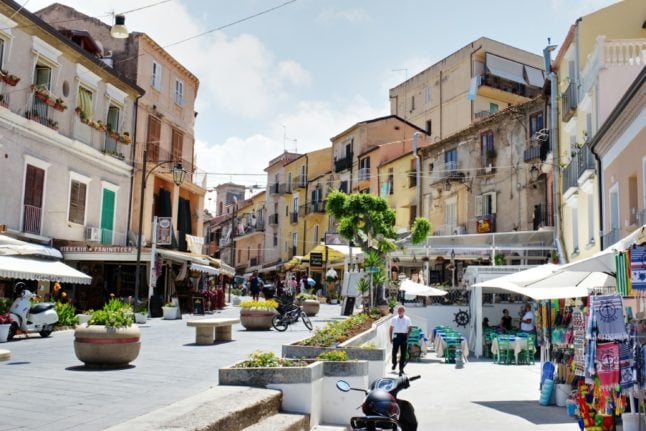Question: ‘I’m planning to move to Italy in future and I’ll need to find a job. I’m an EU national with the right to work in Italy, but I’ve only recently started studying Italian. Are there many options for me, or will I need to speak Italian fluently?”
You may be ready to pack your bags and move to Italy and start your new life, having heard wonderful things from people who live there already or through the various Instagram accounts and Facebook pages you follow.
READ ALSO: Nine of the best websites to search for jobs in Italy
There’s no doubt Italy is a beautiful place to be. But when it comes to finding work, there are a few hurdles even if you don’t face Italy’s complex visa and work permit requirements.
As you might already know, Italy has a chronic problem with high unemployment: the the figure stood at eight percent as of February 2023 against an EU average of around six percent.
If you don’t speak Italian, finding a job is going to be even trickier. Italians also have one of the lowest average levels of English language proficiency out of all 27 EU countries, and this is one reason why many international residents say it can be a difficult country to settle in.
READ ALSO: Why doesn’t Italy have a minimum wage?
But, while you won’t have the sort of choices or salary level you might find in some European countries, people who want to move to Italy do have options. And there may be plentiful opportunities for those who specialise in certain in-demand fields, even without fluency in Italian.
English teacher
This one seems like a no-brainer. English teaching is a perfect way to acclimatise to Italy and its culture without speaking the language to start with – though be aware that not just every native speaker can turn up and bag a job: you will need to be qualified, at least to work legally for a reputable school which treats its staff well.
For those who have a TEFL or CELTA certificate, English teaching jobs are in abundance (though they’re not necessarily highly paid).
You’ll find all types of private English schools catering to all types of levels and ages and even state schools looking for mother-tongue English speakers for conversation lessons.
READ ALSO: ‘It’s crazy’: What to expect when you work for an Italian company
Make sure you read through your Italian employment contract thoroughly before signing (and perhaps have it translated beforehand) to make sure your rights are protected. And, of course, check out the school first before applying. Reputable companies such as the British Council are a safe bet.
Tour guide
A lot of tour operators seek out English-speaking guides especially in peak season for cities such as Rome or Florence where there’s history in abundance – and plenty of visitors willing to pay tour guide fees
Each tour operator has their own set of requirements, but most trustworthy ones would want you to at least have some prior experience or a relevant qualification.
READ ALSO: Why Italy can’t fill its summer tourism jobs
Nevertheless, getting free access to gorgeous landmarks doesn’t sound like a bad way to begin your new life in Italy.
Software programmer
As programming has various different languages itself (Python,Java, C++) a lot of companies view knowledge of these languages as being sufficient enough to bag a job. Software engineers and other technology professionals are among those in high demand in Italy.
Of course, basic Italian knowledge would be ideal to communicate with colleagues, but if you are working remotely, you can always translate your emails to start with.
READ ALSO: Italian work permits: Who needs one and how do you get it?
A few programming agencies in Italy outsource their work to people in other countries too, meaning the field is a highly global one. Of course, as with any job, you’d need to be qualified to do it in the first place.

Agricultural work
If you’re looking for seasonal work outdoors, Italy has plenty of jobs available in agriculture, such as fruit picking or helping with the grape harvest.
It’s hard work, but if you’ve had jobs working on farms before agricultural work in Italy could be a good option to start out.
There’s no shortage of olive oil groves or vineyards that need labourers. However, as with teaching, make sure you read and double-check your contract before signing.
Global companies
This is perhaps the best method for professionals, particularly those working at management level. Applying with global companies gives you the option of speaking English, getting a decent salary, and moving up in your career all whilst exploring a new country.
For example, in Veneto, there’s eyewear company Luxottica; in Rome there are three United Nations headquarters (IFAD, WFP and FAO); and then there are the fashion houses and banking corporations in Milan.
The best way to apply for a job at any such company is to check their websites directly, see what they have available and what their requirements are.
Freelancing
If you can’t find anything in Italy that is suitable for non-Italian speakers and suits your skill set, you might want to consider going freelance in your current field.
It’s not cheap to be a registered freelancer in Italy: most pay at least 30 percent of their income in social security contributions and taxes in their first five years, which goes up to around 40 percent or higher after that.
READ ALSO:
- What are the rules on working remotely from Italy?
- Cafe culture and clocking out: Why remote work is so unpopular in Italy
However, it does give you freedom and autonomy, without having to give up your existing career. See some pros and cons here .
Overall, whilst getting a job as a non-Italian speaker is possible in Italy, it isn’t easy and you’ll definitely need Italian when it comes to related bureaucracy such as contracts.
Talk to international residents before you come or whilst you’re here to get their stories and search on The Local’s jobs board for suitable roles.
Our advice: be prepared and look at all the options.



 Please whitelist us to continue reading.
Please whitelist us to continue reading.
Member comments